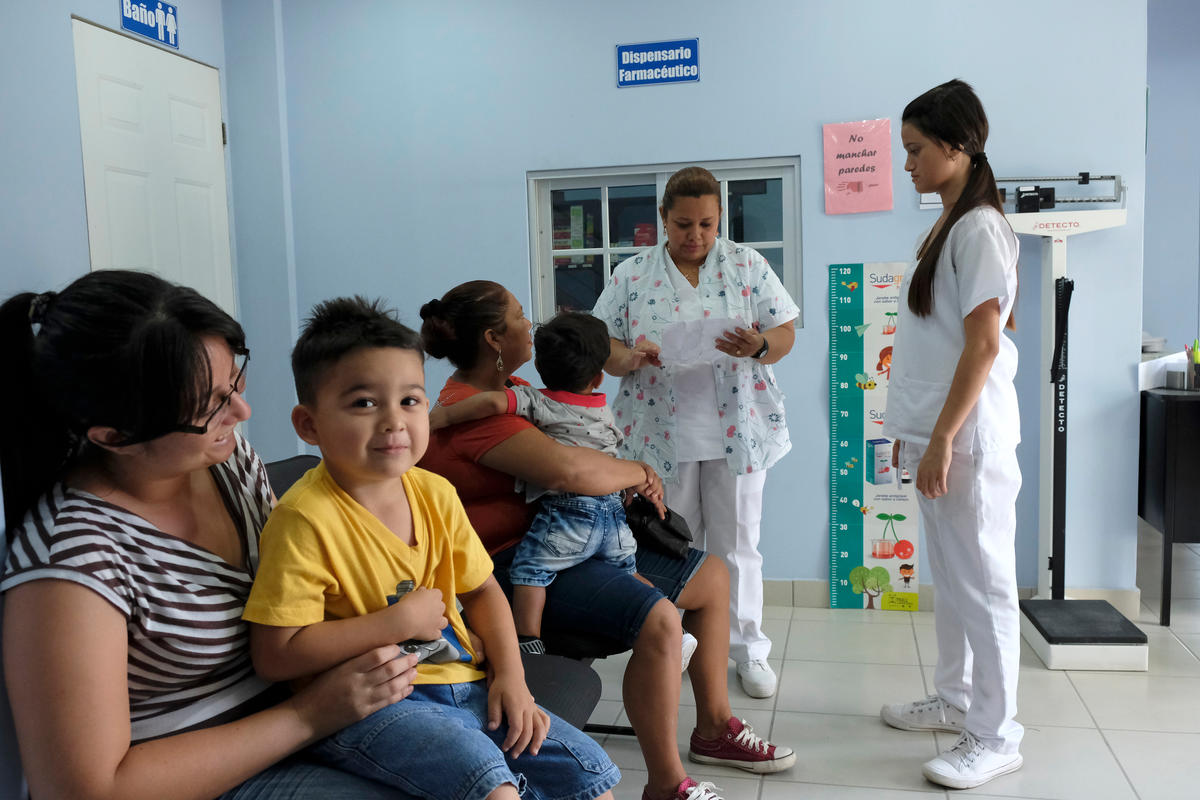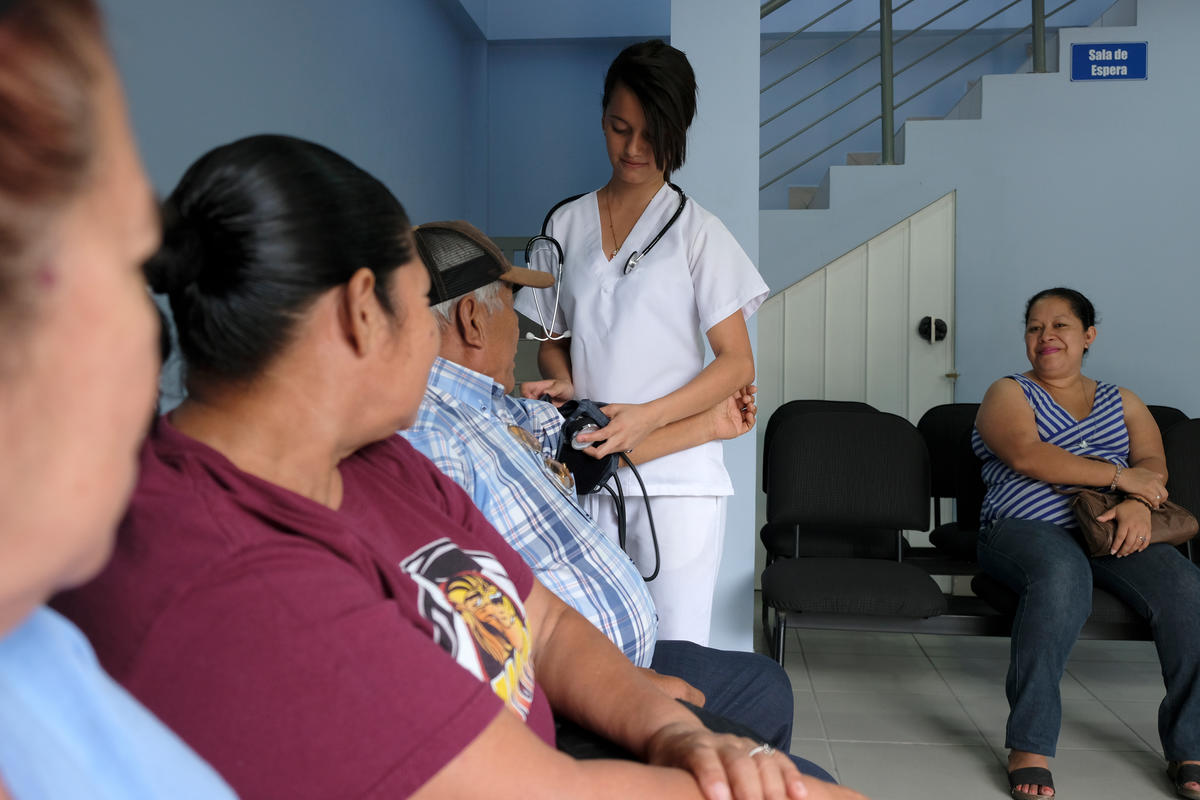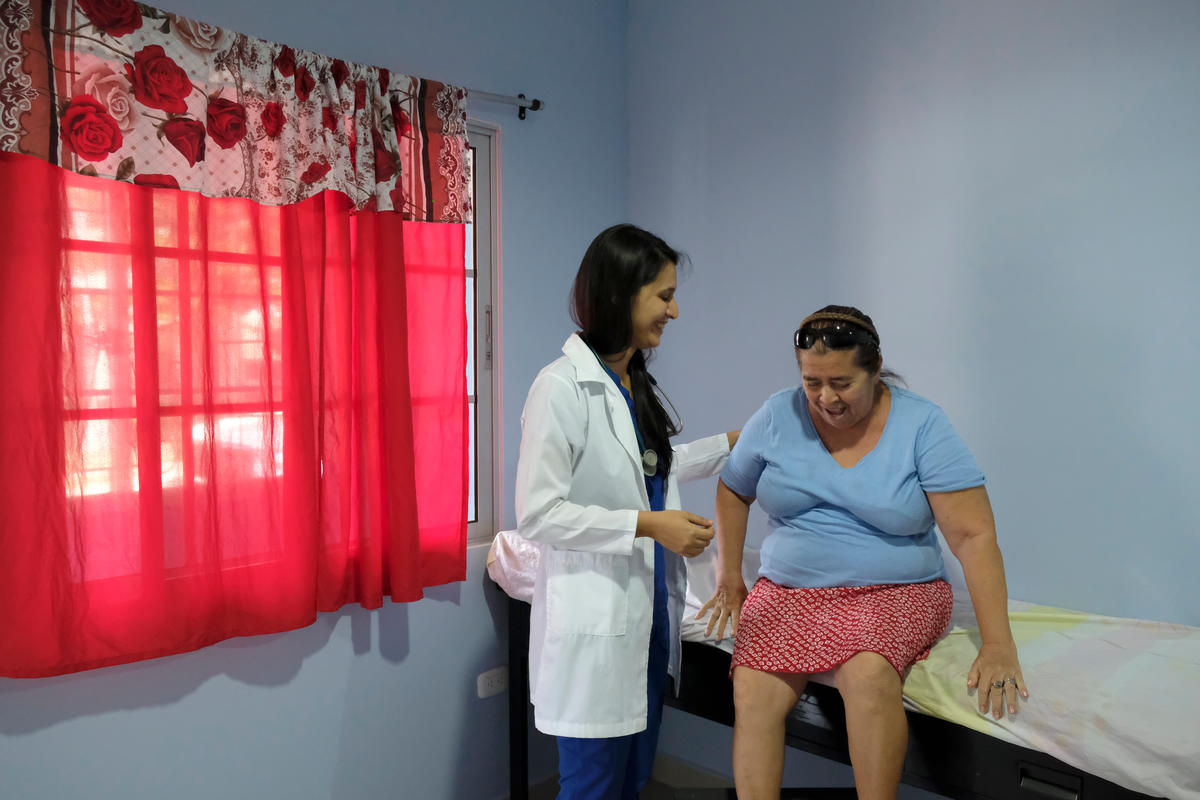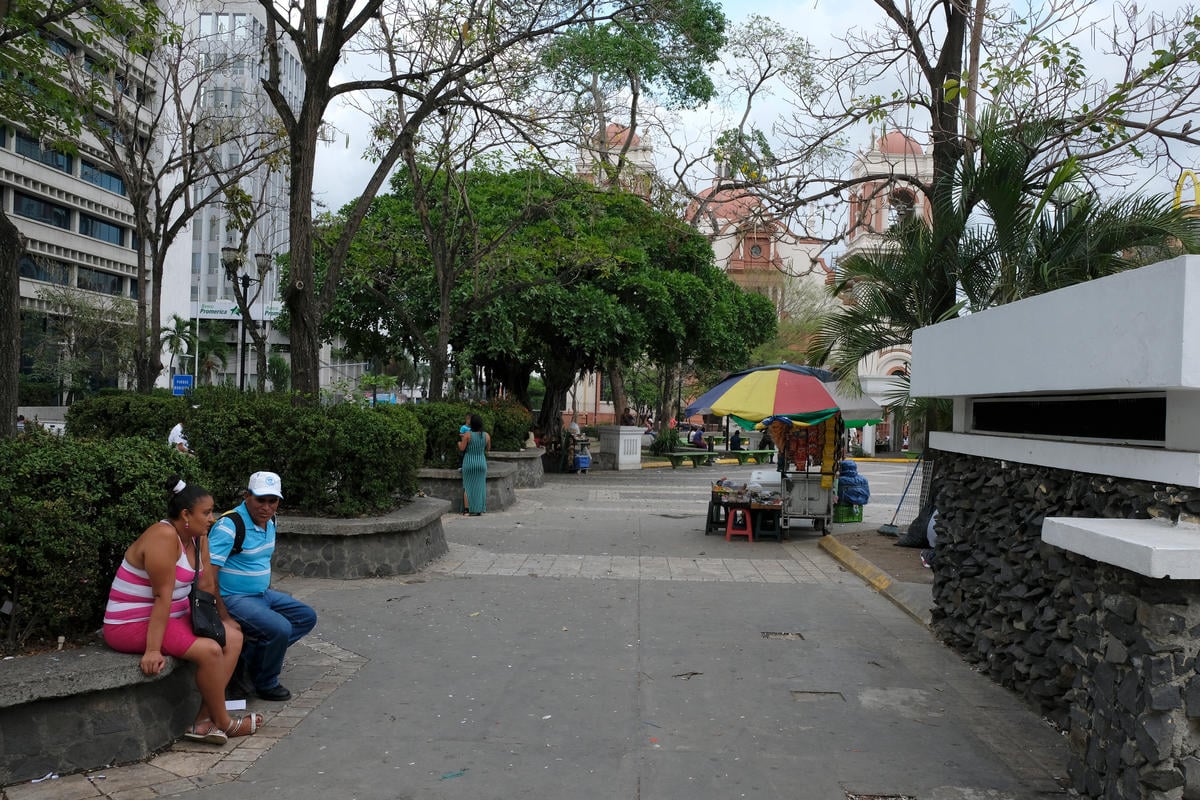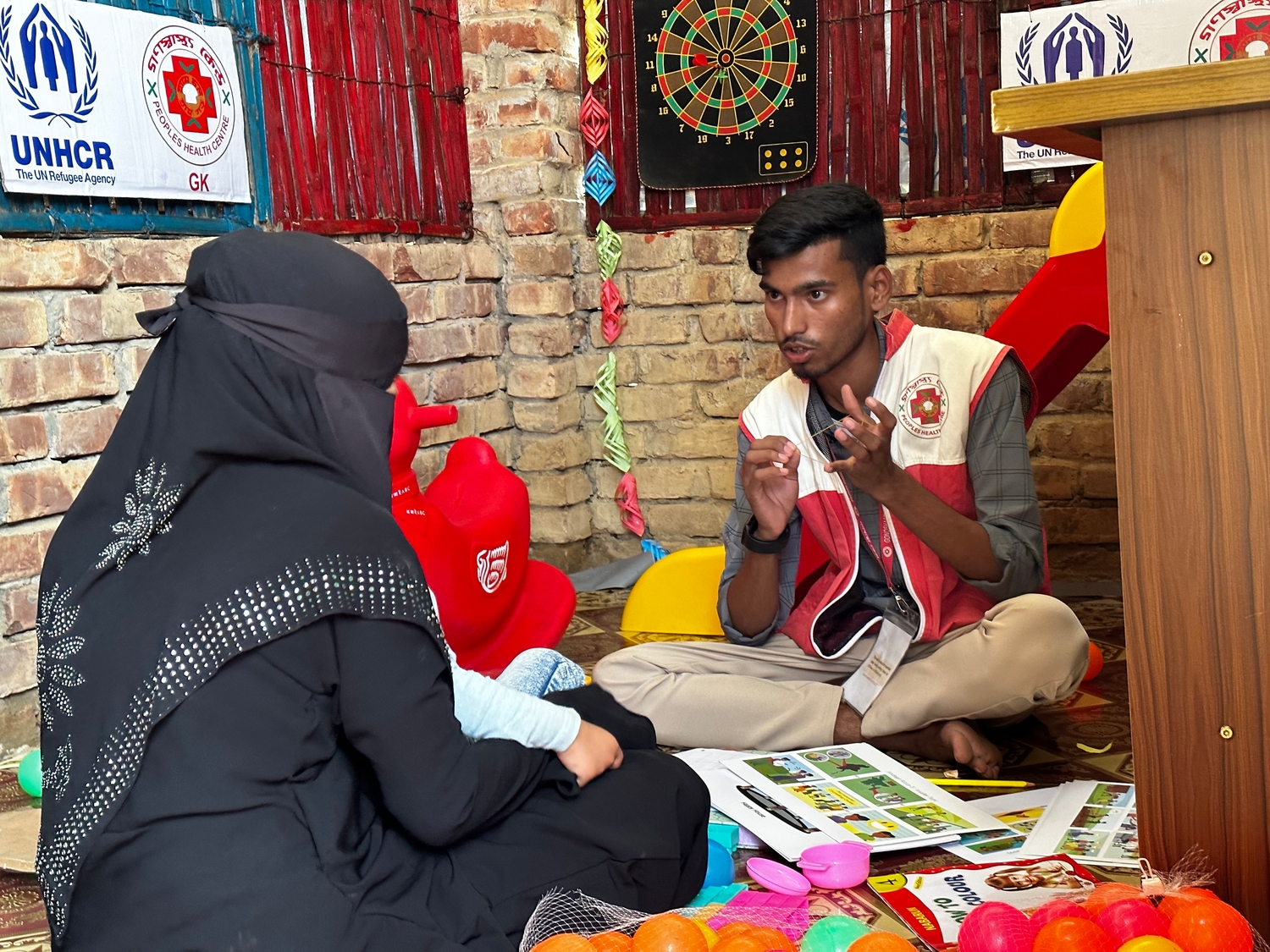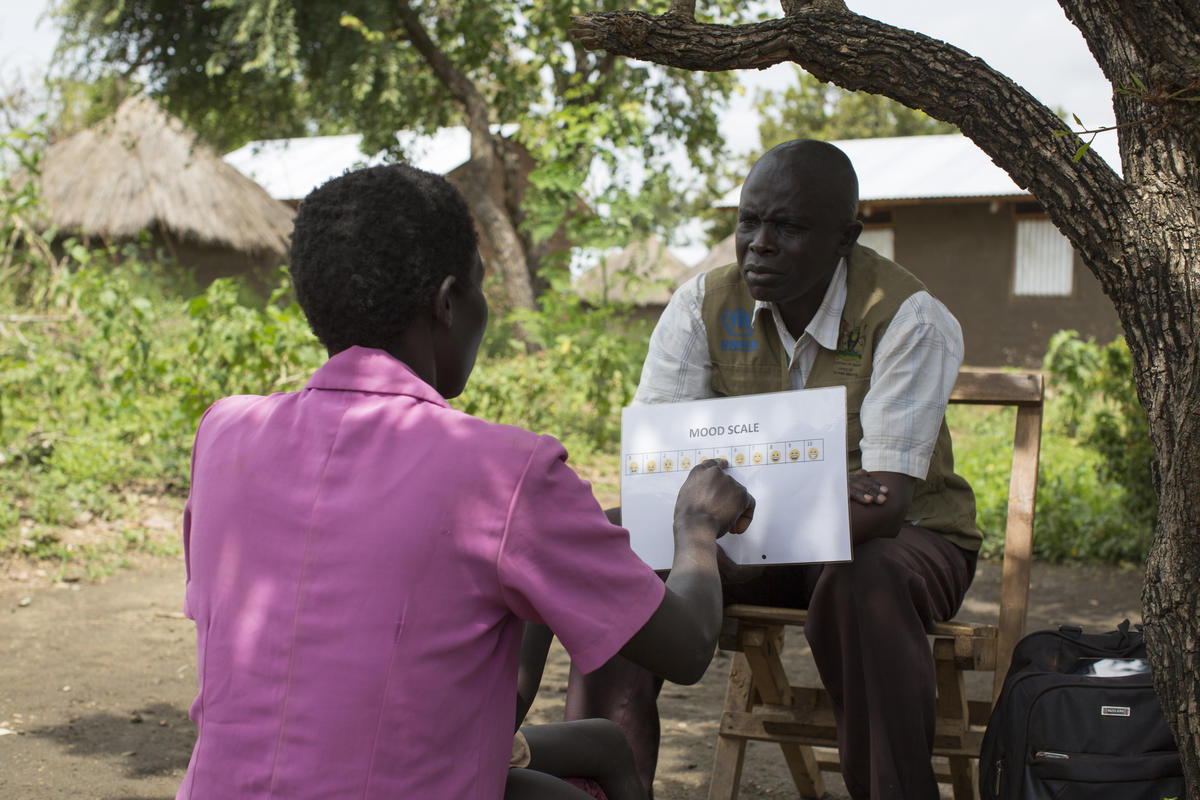Rebuilding a high-risk community, one consultation at a time

Rebuilding a high-risk community, one consultation at a time
On a sweltering afternoon, an elderly couple sit in the waiting room at the free health clinic holding hands, while a young mother waits for a medical appointment with her toddler napping in her lap.
“We welcome anyone in this clinic, we don’t turn anyone away,” says Wendy Espinoza, the health centre’s nurse, who knows everyone in town.
Keeping doors open to all may sound like a simple achievement. But it is a feat in some of the high risk neighbourhoods in San Pedro Sula, Honduras’ second city.
The patchwork of streets in Chamelecón has for years been an arena for rival street gangs MS-13 and 18th Street, who control their respective territories with an iron grip, destroying communal spaces and severing neighbourly bonds.
"We want this to be a holistic support center for the community.”
Since opening its doors April 30, the Holy Trinity Comprehensive Support Centre has assisted roughly 100 patients per month, most young or elderly and suffering from high blood pressure, diabetes, and respiratory illnesses. But this space, which is located between the gangs’ fiercely contested territories but beholden to none, is more than just a health clinic.
“We don’t just want to cover basic medical services and medications,” says Father Luis Estévez, the local Catholic priest behind the project. “We want this to be a holistic support center for the community.”
Such support is very much needed in Chamelecón which came to world attention in 2004, when gang thugs sprayed a bus with automatic weapons fire, killing 28 passengers as they returned from the centre of San Pedro Sula, just ten minutes’ drive away.
The clinic – founded by Father Estévez, community leaders, and UNHCR, the UN Refugee Agency – has a key role to play in rebuilding this community, as part of a comprehensive regional support and protection plan.
Known by its Spanish acronym MIRPS, the plan developed by regional governments with UNHCR’s support, seeks to tackle the root causes of displacement in crime-wracked neighbourhoods, as well as strengthening asylum systems and working on durable solutions.
“It’s a place where people can feel safe, where they can be open with each other and they can be protected,” says Yolanda Zapata, the head of the UNHCR office in San Pedro Sula.
“It’s a place where people can feel safe, where they can be open with each other.”
As an important first step, the clinic welcomes anyone, regardless of what part of Chamelecón they are from or whether they or their family have any gang affiliation.
This inclusivity is important for nurse Espinoza, who has lived in the area her whole life and splits her work hours between the clinic and the trauma unit of a major public hospital. Gang members and their victims are regular patients there.

The clinic provides comprehensive primary care, including help to address the mental health needs of the countless local residents who have suffered or witnessed violence.
Since opening its doors earlier this year, it has an on-site psychologist on Saturdays, who now has a dozen local youth as patients. The waiting list to see the psychologist is now more than a month because of such high demand.
“Our patients often have some kind of trauma they are dealing with,” says Karina Ugarte, the young resident physician at the clinic. “Sometimes it’s severe but sometimes it’s just a little frustration they want to get off their chest. But there’s no other space for them to just talk around here.”
Living with violence, or the constant threat of it, has made many residents fearful and reluctant to open up. The clinic prioritizes privacy and discretion.
“Everywhere else there’s always a fear you’re being listened to so you constantly censor yourself.”
“Everywhere else there’s always a fear you’re being listened to so you constantly censor yourself,” says nurse Espinoza. “That barrier is broken inside here.”
For the fragile community, the Support Centre is seeking to play a wider role than simply providing comprehensive primary care. Upstairs offices and meeting rooms are quickly becoming a hub for rebuilding the community of Chamelecón from the inside.
As part of a push to reverse years of gang rule, the centre has also begun to reach out to local youth, who are particularly affected by high crime and poverty, and are under constant pressure to join one or other of the criminal groups.
“Young people really aren’t allowed to express themselves because from a young age you learn to stay quiet, and that bleeds over into every aspect of life,” explains Angel Sandoval, a teacher at a local school and the coordinator of the center’s budding youth program. “They need a place where they can express themselves and feel free.”

In their first youth outreach, leaders brought together 1,200 young people and organized a talent show in the park. It was the biggest community event in Chamelecón in recent memory.
Community workers and youth leaders are also organizing technical skills training, art and dance classes, and reproductive health workshops at the centre for young people.
And the leaders – Father Estévez, Sandoval and others – are building a growing network of protection for locals since gang control means victims have nowhere to turn when they are at risk.
“People will come to us and say ‘The gang told us we have 48 hours to leave’ but we as community leaders didn’t know what to tell them,” says Father Estévez.
“Our hope is that people automatically think of the Support Centre as the place they can come.”
In response, community leaders are using the support center as a training site to teach local leaders how to refer those in need to UNHCR and other support groups that can assist those who have been displaced from their home.
In this neighborhood, beset by gangs and with a limited government presence, a new generation of local leaders is hoping to change the future.
“Our hope is that in the future when people have any sort of problem or threat, they automatically think of the Support Centre as the place they can come,” he says.

